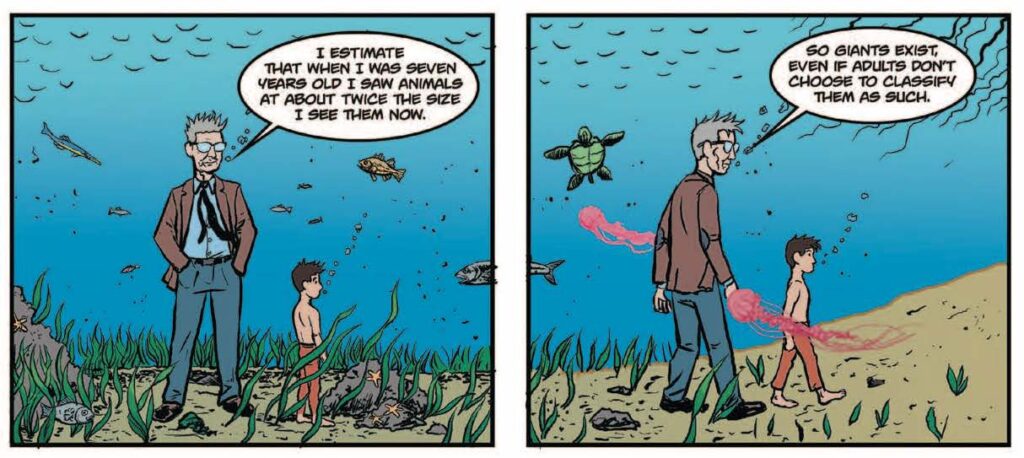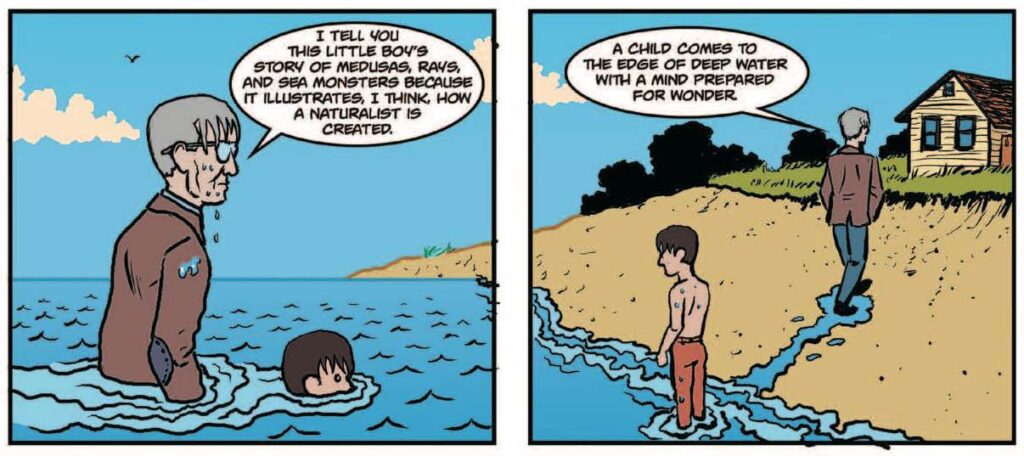It seems, to me anyway, like I should have something to say about E.O. Wilson.
I worked with him to adapt his memoir Naturalist into comics, but we weren’t close collaborators. He already knew our editor Rebecca, he saw Chris’ art samples, he read my outline and some sample script pages and he trusted we’d do a good job.
We did spend time on the phone together when I finished the script, and then again when Chris’ pencil art were complete. He made suggestions (many of which were factual corrections of the “That person had a mustache at the time.” variety, some of which were of the “Oh wow. Yeah, of course I should have done it that way!” variety), and then he once again stepped away. That was gratifying, in that a person who could have easily asserted his ego and stature to make our job harder simply didn’t. I think he was secure in the knowledge that his book was both superb on its own, and could become good comics. I hope it’s not just my own ego talking when I say that I think it did.
One of the biggest challenges, and the thing I’m most proud of, is the way we ended the graphic novel. His original book had, as I recall, three good places to end, but for our adaptation we didn’t have the space to include everything. (We used less than 1/4 of the words from his original, and even with over 1200 panels-worth of picture we couldn’t show everything.) So I had to pick one, and I didn’t pick the same last lines as his original text. I didn’t even pick the last lines of a paragraph.
This made me nervous. A self-taught comics writer like me doesn’t feel qualified to edit a world famous scientist with two Pulitzer Prizes.
But my experience with Ray Bradbury had prepared me to do this, and conversations with my friend and collaborator Leland Myrick did too.
 You can read my Ray Bradbury story here, and I can summarize what Leland taught me more succinctly: sometimes you have to think of comics as poetry. Efficiency and precision in your choice of inked line can produce the same effect as a poem’s concise yet expansive choice of words.
You can read my Ray Bradbury story here, and I can summarize what Leland taught me more succinctly: sometimes you have to think of comics as poetry. Efficiency and precision in your choice of inked line can produce the same effect as a poem’s concise yet expansive choice of words.
I’m not going to tell you what I landed on for the closing scene, and last line of this new look at E.O. Wilson’s life, but I’m proud of what we did, and grateful that Professor Wilson (he said I could call him Ed, but…) recognized that sometimes the best ending doesn’t always appear on the last page, and that inspiration can speak softly.
Anyway, I’ve told the story above before, since it’s the memory of working with him that will stick with me for the rest of my life.
The whole experience was fun. No fancier word needed.
So, Professor Wilson. I wish I could have met you in person. There, at least, I think I’d have been able to muster the courage to say this, this way:
Thank you, Ed.

